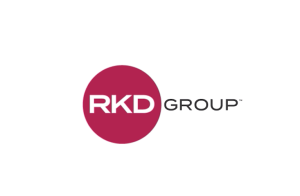Counsel for data firm Epsilon cannot prevent certain documents and communications from being used in a case involving former executives, who are facing multiple conspiracy and fraud charges, by citing attorney-client privacy privilege, according to a ruling from a federal district court judge.
The order asserts that the information Epsilon’s counsel sought to protect in the conspiracy, mail fraud and wire fraud cases against Robert Reger and David Lytle (https://thenonprofittimes.com/articles/former-epsilon-execs-indicted-on-fraud-charges/) fell under the “crime-fraud exception” to attorney-client privilege. Both Reger and Lytle have pleaded not guilty.
Epsilon had previously reached a Deferred Prosecution Agreement (DPA) with the government stemming from the charges. In January 2021, Epsilon agreed to pay $150 million, with $127.5 million of that set aside to compensate individuals who had been victimized by fraudulent mailings that used data from Epsilon.
Epsilon had since petitioned to have material such as client-counsel communication exempted from additional disclosure in the current case, United States of America v. Robert Reger and David Lytle, and it was this petition that the June 2 order denied. “This finding is based on the DPA, in which Epsilon agreed that a crime was committed; the fact that two grand juries have returned indictments finding probable cause that crimes were committed; the fact that co-conspirators have pled guilty to crimes related to the conduct at issue; and documents that have been produced that are discussed in the Crime-Fraud Motion,” U.S. District Court for the District of Colorado Judge Raymond P. Moore wrote.
“The exemption does not apply if the assistance is sought only to disclose past wrongdoing, but it does apply if the assistance is was used to cover up and perpetuate the crime or fraud,” Moore continued, citing a precedent case. “Accordingly, a party may be required to disclose otherwise privileged attorney-client communications if they were made in furtherance of a crime.”
The order continued that “otherwise privileged communications involving legal counsel for Epsilon for the period from January 1, 2008 to January 31, 2018 (the “Crime-Fraud Time Period”) that were in furtherance of or closely related to the crime admitted by Epsilon in its DPA, as supplemented by the allegations in the government’s indictment and superseding indictment in this case and the pleas of others who engaged in the conspiracy, and that therefore those communications, whether oral or written, are not privileged.”
The NonProfit Times reached out to Reger and Lytle’s defense attorneys, Epsilon’s attorneys, representatives from the U.S Attorney’s office and Department of Justice officials but had received no comments at deadline.
The charges against Reger, formerly a senior vice president of the Epsilon Data Management’s Data Practice division, and Lytle, formerly a business development manager at Epsilon, stem from actions the two supposedly took while in Epsilon’s employ.
As part of its 2021 DPA, Epsilon admitted that between July 2008 and July 2017 employees within its Direct to Consumer (DTC) Unit knowingly provided consumer prospect lists to purveyors of mass-marketing fraud schemes. In addition to paying the $150 million as part of its settlement, Epsilon admitted:
* Its DTC Unit’s clients included individuals and entities that had mailed “deceptive solicitations, including sweepstakes, astrology, auto-warranty, dietary-supplement, and government grant offers”
* Epsilon employees referred to the prospects it supplied to the mailers as “opportunity seekers” and the clients who mailed to them as “opportunistic”
* The sources for the prospect names and data came from a mixture of data supplied by other opportunistic clients as well as legitimate business, charitable and nonprofit organization clients. The 30 million consumers within these data filed included a significant population of elderly individuals
* The business relationships Epsilon’s DTC Unit employees had with clients engaged in fraud allowed the company to model consumer data for prospect lists for legitimate clients
Under the terms of the June 2, 2023 order, Epsilon was denied claiming privilege over:
- All documents withheld as privileged and listed on the privilege logs provided by Epsilon to the government in connection with the government’s subpoenas dated January 17, 2017, and August 29, 2017;
- All communications, in any form, involving Epsilon’s legal department regarding the Direct to Consumer Unit where the legal department was either receiving or reviewing the substance of creative of clients;
- All communications between Epsilon employees and outside counsel Robert Webster, Esq. related to the legal representation in this matter, that the government and Epsilon agree, or the Court orders after in camera review, are in furtherance of or closely related to the crimes in question;
- All communications that relate to “opportunity seeker” clients, which include: a. clients designated in Epsilon’s Market Research Category 67; b. all client’s listed in DTC sweepstakes modeling tables; c. all clients listed in the government’s August 2017 grand jury subpoena; and d. all clients terminated by Epsilon in October 2017;
- Oral communications related to paragraphs 1-4 involving: a. Lisa Gallerano, Esq.; b. Noga Rosenthal, Esq.; c. James Bryan Myers, Esq.; and d. Nicole Day, Esq.
The four named individuals represent internal and external counselors.
Per the order, materials not previously produced must be submitted by June 20, in the case of those listed in paragraph 1 and those involving correspondence with Epsilon outside counsel Robert Webster. Any remaining materials must be produced by June 30.
The order does not apply to communication between Epsilon’s in-house and outside counsel regarding outside counsel’s internal investigation related to grand jury subpoenas; legal strategy around responding to the grand jury subpoenas and negotiations on this subject with the government or scheduling and other administrative matters.
Publicis Groupe, a Paris-based advertising and public relations company, acquired Epsilon in 2019 for around $3.95 billion, according to a statement from Publicis. The statement also said Epsilon would be at the core of Publicis Group, and would “turbocharge all of Publics Groupe’s operations.”
In July 2021 the company issued a statement that read, in part: “As part of Publicis Groupe, Epsilon adheres to the highest standards of compliance and employee conduct. Before acquiring Epsilon, Publicis ensured that Epsilon had taken corrective action, including putting in place an industry-leading compliance program in the Data Practice.”








